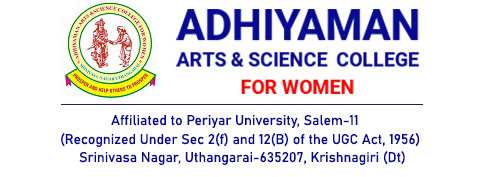To sustain the intervention, all the project equipment was retained by the implementers at the end of the project. The health district team and a focal point in each of the health centres were designated by the MoH to continue providing technical supervision to the CDSS end users in the health centres. Moreover, they were supported remotely by the project’s former clinician and ICT specialist 51. Figure 4 shows a medical consultation of a child in the health district of Goré, Chad. We employed a 3-day training of trainers approach involving national clinicians at the central and district levels. The training material was prepared mainly by local project clinicians and ICT specialists.
Behavioral Health Blog
This process of customizing interventions ensures clients receive the most effective and personalized care possible. SBT is uniquely located in the southwestern anchor of the Inland Empire and positioned in the picturesque bedroom community of Murrieta, California. Choosing Cedar Hill Behavioral Health provides clients with expert care and effective therapeutic interventions tailored to their unique needs. Their commitment to excellence makes them a top choice for those seeking solution-focused therapy in Massachusetts.
Moreover, the repeated workshops likely allowed gradual familiarity with the project team, encouraging the expert panel members to question the clinical algorithms. Every conceivable scenario should be considered; therefore, various clinical tests (clinical vignettes) were developed and carried out. End users should be actively involved in this process from the beginning to foster their understanding. To respond to new evidence and updated guidelines, a process of regularly refreshing the clinical content (by periodical revisits of the clinical algorithms and adaptation if required), is needed to ensure that it remains relevant.
Why Choose Solution Based Treatment?
Adaptations were made to reflect the local epidemiology and account for identified priority conditions. If relevant guidelines solution based treatment were absent or outdated, we sourced complementary topic-specific publications and recommendations from international public health and humanitarian organisations. The national expert panel reviewed and formally approved the scope of medical conditions, including their diagnosis and management.
Our aim is to divulge the secrets of the global solution and service leader providers’ success. Continued research and systematic reviews are essential to further understand the full potential and limitations of solution-focused therapy and outcome research. These studies will help refine the approach and enhance its application in various therapeutic contexts.
The project was carried out in three primary healthcare facilities within a health district in southern Chad, covering a population of 48,000, which includes a significant number of refugees from the Central African Republic. The intended end users were nurses, nurse assistants, and midwives, with supervision provided by health district teams. As the CEO of SBT, Brown has dedicated the past decade to providing exceptional care and treatment to those seeking recovery from the life threatening and enervating effects of addiction. Brown utilizes his expansive storehouse of expertise garnered through association with various marketing, lead generation, and call center enterprises to propel the organization to new heights of success.
Future areas of counseling outcome research should also consider clients’ emotional language use and cultural differences, which can impact therapy outcomes. Research has shown that change is seen as inevitable and essential for client progress. Therapists should focus on fostering a positive and supportive atmosphere, encouraging clients to identify and leverage their strengths. Practical tips for therapists include using open-ended questions, actively listening, and providing constructive feedback. Consistent reflection on small, manageable changes is a key part of the solution-focused approach.
Fostering collective problem-solving and support among participants, these techniques create a supportive environment where individuals can share their experiences and learn from each other. The Miracle Question is a powerful technique used in solution-focused therapy to help clients visualize their preferred future. It involves asking clients to imagine that a miracle has occurred overnight, and their problems have been resolved. This question encourages clients to articulate a clear vision of how their life would change if their issues no longer existed.
Your Insurance May Cover 100% of the Cost of Treatment
- This improvement occurs by strengthening healthcare providers’ clinical skills and enabling them to operate more independently while adhering to standard treatment guidelines.
- As the CEO of SBT, Brown has dedicated the past decade to providing exceptional care and treatment to those seeking recovery from the life threatening and enervating effects of addiction.
- Coupled with a reliable electronic recording and reporting system, the CDSS has the potential for health facility-based disease surveillance.
- However, its complexity requires significant effort from clinicians and ICT specialists for development and validation.
- The CDSS, based on the WHO’s Integrated Management of Childhood Illness (IMCI) and national guidelines, was tailored to the context of available resources and epidemiological patterns.
Brown envisioned this endeavor and brought it to fruition with the sole mission of helping those suffering with alcoholism and addiction. His vision for SBT was crafted by the unwavering belief that all lives are worth saving and this innate faith invigorates the fire in the team to curate positive outcomes, not only for the clients but for their loved ones as well. Passion, commitment, perseverance, and integrity are the core tenets of the organization’s ethos. SBT is astutely dedicated to providing a safe, nurturing, and positive environment for individuals to recover from their addictions. It is also devoted to the development of ethical and effective substance abuse treatments that can be complementarily applied with the strongly rooted 12-step program.
Solution-Focused Treatment at Mission Harbor Behavioral Health
It was recorded in the health booklet at the patient registration service and then entered into the electronic tablet by the consulting health worker for the first visit of a case and used for follow-up visits. To secure electronic devices, a liability contract was signed by the involved parties (the project coordinator, the district medical officer, and the health centre manager). The devices, accessories, and their conditions were recorded in a handover book at every shift change to produce traceability.
Variants of CBT, such as Strength-based CBT and DIALOG+, have been influenced by solution-focused principles. These approaches integrate the strengths-based and goal-oriented aspects of SFT with traditional CBT techniques, creating a more holistic therapeutic process. The emphasis on quick solutions in SFT may lead to a neglect of deeper emotional issues, potentially leaving clients without the comprehensive support they need. This limitation highlights the importance of carefully assessing clients’ needs and ensuring that SFT is the appropriate intervention. In family therapy contexts, solution-focused techniques help families collaboratively identify and work towards their unique goals in marital and family therapy. This collaborative approach fosters a sense of unity and collective problem-solving, strengthening family bonds and improving overall dynamics.
These therapies are supported by data and show effectiveness for specific mental health disorders. For example, interventions rooted in Cognitive Behavioral Therapy (CBT) are well-known for success in treating depression and anxiety. Solution Based Treatment is the nationwide leader in providing inpatient detox programs and residential treatment. Solution based therapy is a goal-oriented method that focuses on finding solutions rather than analyzing problems.
Drug addiction is the excessive and repetitive use of substances, despite harmful consequences to a person’s life, health, and relationships. Emerging adults ages receive treatment catered to the unique challenges of early adulthood, like college, risky behaviors, and vocational struggles. Serving over 3 million clients throughout California with an ongoing mission to help the community. Serving Rhode Island, Massachusetts, and Connecticut with affordable healthcare plans and partnership with Harvard Pilgrim Health Care. Cigna’s unique history traces back to 1792, but today they offer services to 190 million customers in 30 different countries across the globe.
- These programs provide individuals with round-the-clock care in a supportive environment, allowing them to focus entirely on their mental health and well-being.
- As we celebrate this month, it’s important to turn our attention toward solutions-based treatment, which plays a key role in recovery.
- Consistent reflection on small, manageable changes is a key part of the solution-focused approach.
- SBT inpatient detox centers provide medical supervision as you make it through the initial stages of withdrawal when you decide to seek treatment.
- The decision on the algorithm’s design had to be weighted between its complexity and the usability of the end product (CDSS) in a resource-constrained local context.
- Continued research and systematic reviews are essential to further understand the full potential and limitations of solution-focused therapy and outcome research.
Solution-focused therapy stands out as a dynamic and empowering approach to therapeutic intervention. By focusing on clients’ strengths and envisioning a preferred future, it offers a refreshing alternative to traditional problem-centered therapies. The various techniques, such as the Miracle Question, Scaling Questions, and Exception Questions, provide practical tools to help clients identify and build on their existing capabilities.
There is a risk that clients may declare therapy successful prematurely, causing uncertainty for therapists regarding the clients’ true readiness to end the therapeutic process. Ongoing assessment and communication are crucial to ensure that clients are genuinely ready to conclude therapy. The collaborative nature of solution-focused therapy enhances client ownership and commitment to the therapeutic process. Clients are actively involved in setting goals and developing strategies, which increases their engagement and motivation. The approach emphasizes clients’ strengths, fostering a sense of empowerment and active participation in their healing.






